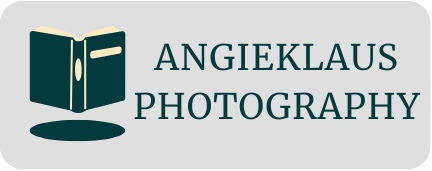In a world overflowing with distractions, improving reading skills can feel like trying to find a needle in a haystack—if that needle were a bestseller and the haystack were TikTok videos. Yet, the ability to read effectively opens doors to knowledge, creativity, and even a few snazzy dinner conversations. Who wouldn’t want to impress friends with tidbits from the latest thriller or an insightful article?
Table of Contents
ToggleBenefits Of Improving Reading
Improving reading skills brings numerous benefits, including enhanced cognitive abilities and emotional growth. Readers experience significant transformations that positively impact various aspects of their lives.
Cognitive Advantages
Improving reading skills boosts brain function and sharpens analytical abilities. Enhanced vocabulary results from exposure to diverse literature. Engaging with complex texts improves critical thinking and comprehension. Additionally, readers often develop better memory retention, as recalling details becomes easier. Creativity flourishes as individuals synthesize information from different sources. When they read regularly, they often find themselves more equipped to solve problems efficiently.
Emotional Growth
As reading skills improve, emotional intelligence also develops. Individuals learn to empathize through characters’ experiences and situations. This practice fosters deeper connections with others. Engaging narratives often evoke strong emotional responses, leading to greater self-awareness. Additionally, reading aids in coping with stress and anxiety, offering escapism from daily pressures. Improved reading habits nurture resilience, as individuals learn to face challenges through the stories they explore.
Strategies To Improve Reading

Improving reading skills requires strategic approaches. These methods can help individuals develop their abilities effectively.
Setting Reading Goals
Establishing clear reading goals enhances focus and motivation. By determining specific objectives, readers can track progress and celebrate achievements. For instance, aiming to read one book weekly expands knowledge. Goals can also involve genres, such as exploring non-fiction or classics to diversify understanding. Written goals often lead to better commitment and consistency. Sharing these objectives with peers provides additional accountability. Prioritizing intensity in reading goals, like choosing challenging materials, supports cognitive growth and engagement.
Creating a Reading Schedule
Developing a reading schedule can significantly increase reading time. Designating specific days and times for reading creates a routine. Allocating even 15 minutes daily leads to substantial progress over time. Choosing quiet spaces minimizes distractions, enhancing concentration. Incorporating breaks between reading sessions helps maintain focus and prevents fatigue. Flexibility in the schedule allows adjustments based on individual needs or changes in workload. Prioritizing these reading intervals fosters a more enjoyable experience and reinforces dedication to improvement.
Techniques For Better Comprehension
Effective techniques can significantly enhance reading comprehension. Readers often find that employing specific strategies allows for greater retention and understanding.
Active Reading Strategies
Incorporating active reading strategies fosters engagement with the text. Readers might highlight key phrases to emphasize critical points. Asking questions about the material promotes deeper thinking and understanding. Summarizing sections helps solidify comprehension, allowing readers to recall information more easily. Discussing insights with others can further enhance comprehension by providing different perspectives. Another effective approach is visualizing content, which aids in forming mental images related to the text.
Note-Taking Methods
Utilizing effective note-taking methods supports and reinforces comprehension. Organizing notes using bullet points allows for clearer structure and easier review. The Cornell method divides notes into summaries and main ideas, streamlining the recall process. Sketching mind maps connects concepts visually, promoting a holistic understanding of the material. Incorporating symbols or colors in notes can highlight important themes and relationships, making information retrieval faster. Digital tools, like note-taking apps, also enhance accessibility and organization.
Recommendations For Reading Materials
Selecting appropriate reading materials enhances the learning experience. Choices between fiction and non-fiction can impact reading improvement.
Fiction vs. Non-Fiction
Fiction offers imaginative journeys, often fostering creativity and empathy. Characters and narratives engage readers emotionally, enriching their understanding of human experiences. Readers can build emotional intelligence through relatable situations. Non-fiction presents factual information, promoting analytical skills and critical thinking. Biographies, historical accounts, and essays challenge perspectives and inspire growth. Both genres provide distinct benefits, supporting well-rounded reading skills.
Recommended Genres
Diverse genres cater to varying interests and skill levels. Mystery novels stimulate curiosity and encourage problem-solving. Science fiction sparks imagination while broadening comprehension of complex concepts. Fantasy transports readers to different worlds, enhancing creativity. Self-help books offer practical guidance, promoting personal development. Incorporating a mix of these genres cultivates a rich reading habit. Select materials based on interests while ensuring a balance between entertainment and education.
Conclusion
Improving reading skills is a rewarding journey that opens doors to knowledge and personal growth. By embracing effective strategies and setting clear goals, individuals can transform their reading habits into a fulfilling experience. The right materials and techniques not only enhance comprehension but also foster creativity and emotional intelligence.
As readers explore diverse genres and engage in active reading practices, they’ll find themselves better equipped to navigate the complexities of life. The benefits of improved reading extend beyond the page, enriching conversations and deepening connections. With dedication and the right approach, anyone can elevate their reading skills and enjoy the myriad advantages that come with them.



